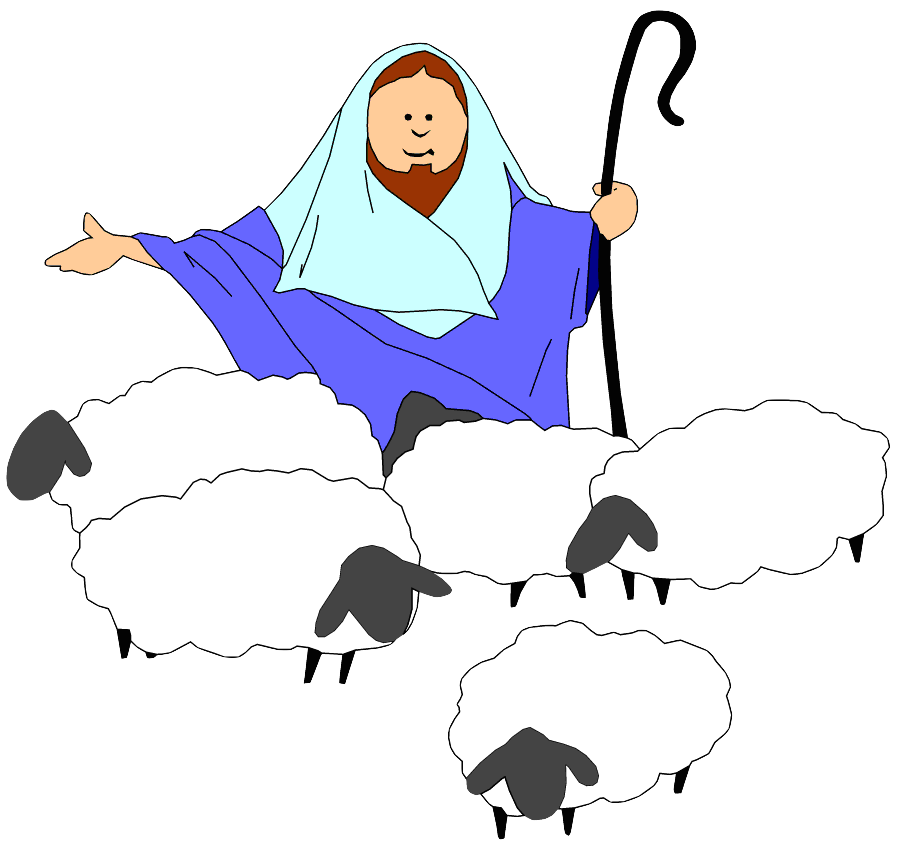
Remember in the beginning, when Jesus was born, God said through His angels,
Reference Text: Luke 15:1-32
Introduction: The story of the Prodigal Son is the perfect illustration of the love God has for us and His willingness to accept us into his house and his family just the way we are.
You have probably heard this a hundred times, "You can never go home again."
Well, that's just not true! Want to hear more? Stay tuned.
You have probably heard the Prodigal Son story at least dozens of times. Right? Do you really understand what Jesus was teaching?
This was the third of three parables illustrating God's love and the importance of repentance.
In Luke 15 verses 2 through 7 Jesus explains the importance of the one that repents. In verses 8 through 10 again Jesus tells of the importance of repentance. The third part of this trilogy is the Prodigal Son parable. Let me summerise that story.
Now let's talk about what Jesus was saying. You see that's the end of the chapter and the next chapter starts with another parable.
In the beginning of the chapter, back in the first verse, we had the Pharisees talking among themselves about how Jesus was associating with "sinners". So Jesus does this trilogy about sinners.

Remember in the beginning, when Jesus was born, God said through His angels,
"Glory to God in the highest, and on earth peace to men on whom his favor rests." What God was saying was I am declaring peace with mankind! Jesus spent his whole ministry telling everyone who would listen about how great God's love is.
So here, He is doing it again. In verses 1 and 2 the Pharisees are looking down their noses at Him because He is sitting in the midst of tax collectors and other 'low-lifes'. When Jesus is telling these three stories he is also talking to the Pharisees.
The Lost Sheep
 In verses 3 through 7 He speaks of a shepherd that has lost a sheep. He leaves the flock and goes looking for the lost sheep. Has any one wondered how the shepherd knew that one of his one hundred sheep was missing?
In verses 3 through 7 He speaks of a shepherd that has lost a sheep. He leaves the flock and goes looking for the lost sheep. Has any one wondered how the shepherd knew that one of his one hundred sheep was missing?
Nobody asks that!
 A Good Shepherd would know if one of his sheep (you or me) were lost!
Notice in the parable the shepherd didn't have any problem finding his lost sheep. Notice also he didn't make the sheep walk home, and he didn't drag the sheep home behind him. He put the sheep on his shoulders and carried it home rejoicing.
A Good Shepherd would know if one of his sheep (you or me) were lost!
Notice in the parable the shepherd didn't have any problem finding his lost sheep. Notice also he didn't make the sheep walk home, and he didn't drag the sheep home behind him. He put the sheep on his shoulders and carried it home rejoicing.
Then the word speaks of how there was rejoicing that the one lost sheep was found. And how there is rejoicing over the one sinner who repents not for the ninety-nine that were already safe (saved).
The Lost Coin

In verses 8 through 11, There is a story of a woman with ten silver coins, and looses one. Evidently each silver coin was of considerable value. When she looses it, she turns the house upside-down looking for it. When she found it, she goes from neighbor to neighbor telling them that what was lost has been found!
Again Jesus reminds us that in the same way there is rejoicing when one who is lost is found. In this case He uses the word repents. 'Repents' implies changing of ones ways or direction.
With these first two stories Jesus laid groundwork for the third parable, the parable of the Prodigal Son. This story is proof that 'You Can Go Home Again'.
The Lost Son
I did the outline of this parable earlier so I will not repeat it but I encourage you to read it again for yourself. It is important to me not to make more of this parable than was intended.
So the youngest son gathers his stuff, his part of the family fortune and heads out for parts unknown. Notice he did not get half but a part. The eldest son always got the greater share. But that’s another story. The general feeling is that the boy was impetuous, headstrong and maybe a bit spoiled.
All the time he lived in his father's house he lived under his covering of protection. He had little or no self-discipline. He was in a hurry to get out in the world and be his own man. Like most of us he wanted to be on his own.
Well, it didn't take him long to go through his money. Lacking discipline he probably paid no attention to what he bought or how much he paid for it. And as it so often happens when things are going down hill they just got worse. There was a famine in the country he was in. That made things only worse for the lad. When the locals didn't have enough to eat you just know that getting a handout just wasn't going to happen.
So the young man finds himself destitute and hungry. Now he finds out what it's like to have to work for a living. It must have been pretty hard for the boy because he finds himself wishing he could eat some of the hog's food! YUCK!
It's not clear how long before he came to his senses. Isn't it interesting how negative situations will cause us to change the way we think or act? And so it was with the young man. He begins to think about the benefits of his father's house. "Even the hired hands have enough to eat." Now he starts the repentance in his heart. That's where it must start. Here we have the jest of the sinner's prayer. "Father forgive me, I have sinned against you and heaven. I am not worthy to be called your son but let me be like a hired man."
So he quits his job and goes home. That must have been tough. He was giving up a job that would have given him food and some sort of shelter for what? When he got home how would he be greeted. Would a judgmental father give him a ration of abuse and turn his back on him? What sort of abuse would he have to suffer from the hired men and servants? What sort of indignity would he have to go through? Can you imagine the things that would be going through his head as he made the long walk home? Broke, hungry and really down on himself.
The story has a happy ending the father welcomes him home gives him new sandals, a new robe and a shiny new ring for his finger. I suppose that the ring signified that he was a member of the household.
The scene with the brother is like something from a bad TV melodrama. The older brother gets angry and whines that he can't even have a goat to have a barbecue with his friends. Poor baby! I like the way the father reminds him that all he has is his and that he is always there. But he had to celebrate the return of his other son.
The implication for us
All too often we start out as the young man. Then we decide we want to go out into the world and do our own thing. All too often we find our self in a desperate situation. What happens next is up to us. Many, far too many, make the wrong choice and stay in the 'foreign land' and things go from bad to worse and then get even worse. The solution is right there for us to see. Change the direction you are heading and things will improve.
Don't wait to get yourself back together!
Notice the young man did not say, "When I get my stuff together I'm going home and start over again." He did not say, "When I get enough money together I'm going home."
Jesus was describing God's relationship with us. Many of us fall into one of the two categories. We are either the goodie-two-shoes or we are the rebellious kid that wants to do things his way. We see from the parable how the Father handles both types.
The young man went back to the place he knew. He went back to the Father. Did the father wait for him to complete the journey? NO! The Father ran out to meet him while he was still a long way off. While he was a long way from being back in the house.
In the same way God the Father comes out to greet us when we come home to Him. He does not ask us to clean ourselves up or clean up our act. He puts only one condition on our returning home, to be repentant! The forgiveness for our foolish ways is there because of Jesus. We are welcomed home with open arms. We Can Go Home Again! We can repent and go back to GOD!
Last modified: Friday, April 22, 2016